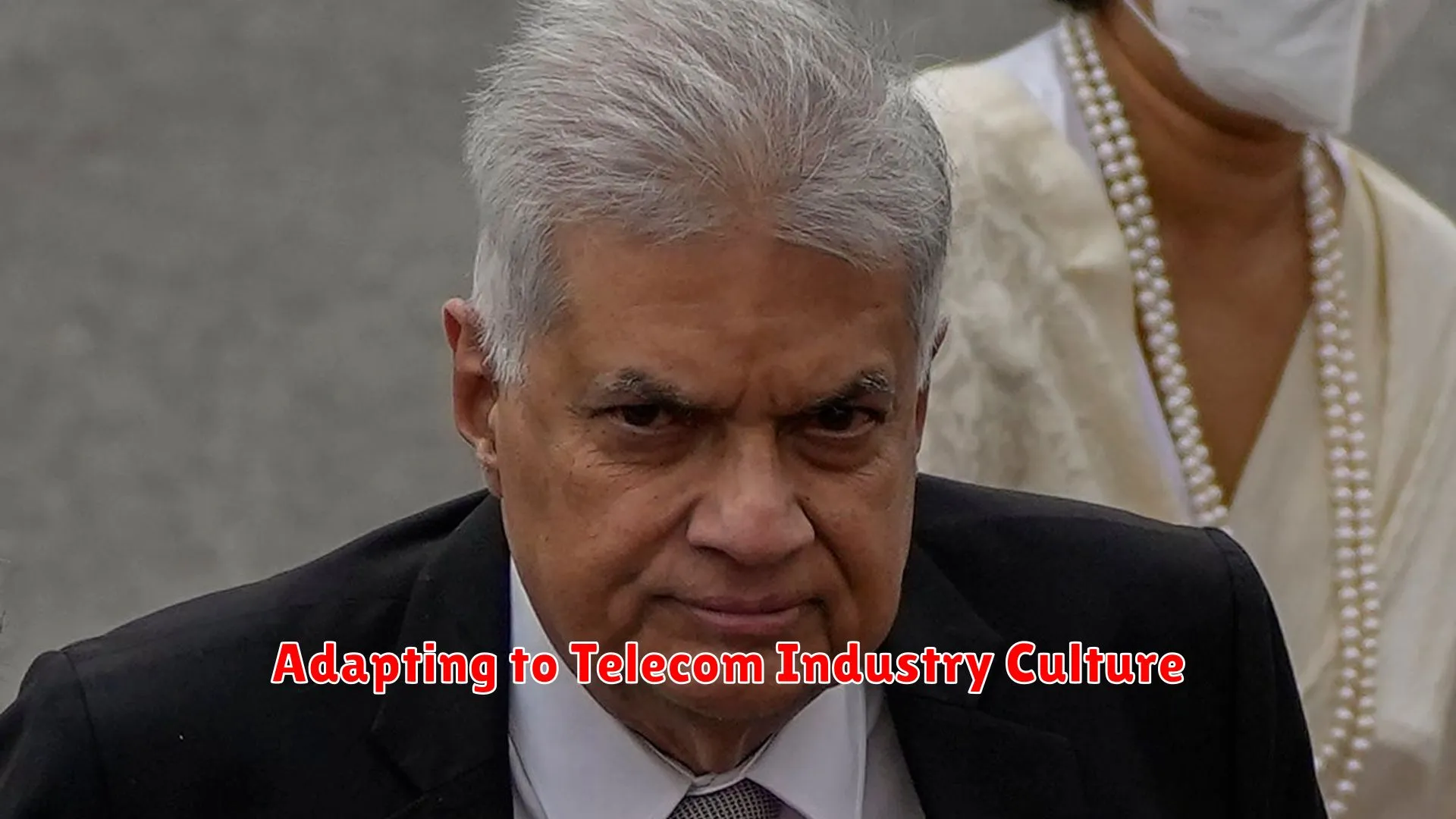
Explore the promising job prospects in Sri Lanka’s telecommunications sector with a comprehensive look at the current job market trends and opportunities.
Telecom Industry Overview in Sri Lanka
The telecom industry in Sri Lanka has experienced significant growth and development in recent years, positioning the country as a notable player in the region’s telecommunications sector. The industry is dominated by several key players, including Dialog Axiata, Mobitel, and Etisalat, who provide a wide range of services such as mobile, broadband, and fixed-line communications.
Mobile Penetration: Sri Lanka has a high mobile penetration rate, with a large percentage of the population having access to mobile phones. This widespread use of mobile devices has fueled the demand for innovative services and technology in the telecom sector.
Internet Connectivity: The country has also made significant strides in improving internet connectivity, with an increasing number of Sri Lankans gaining access to high-speed internet services. This has led to a growing demand for broadband and data services, driving further investment in infrastructure.
Government Initiatives: The Sri Lankan government has implemented various initiatives to promote the growth of the telecom industry, including policies to encourage foreign investment and support local innovation. These efforts have played a crucial role in driving the expansion of telecom services in the country.
Job Opportunities: The growth of the telecom industry in Sri Lanka has created a range of job opportunities across different functions, including network infrastructure, customer service, sales and marketing, and technology development. As companies continue to expand their operations, the demand for skilled professionals in the telecommunications sector is expected to rise.
In conclusion, the telecom industry in Sri Lanka is a dynamic and thriving sector that offers exciting prospects for growth and development. With ongoing investments in technology and infrastructure, the country is well-positioned to continue its upward trajectory in the telecommunications market.
Prominent Telecommunications Jobs

Within Sri Lanka’s telecommunications sector, several key job roles play crucial roles in shaping the industry’s future. These prominent telecommunications jobs require specific skills and expertise to keep up with the fast-paced nature of communication technologies.
1. Network Engineer
Network engineers are essential in designing, implementing, and maintaining the telecommunications networks. Their responsibilities include ensuring the network’s reliability, scalability, and security to meet the growing demands of users.
2. Telecommunication Technician
Telecommunication technicians are responsible for installing, repairing, and maintaining the communication equipment and systems. They play a critical role in keeping the telecommunication infrastructure operational.
3. Data Analyst
Data analysts within the telecommunications industry analyze large sets of data to derive insights and trends. Their work helps companies make informed decisions about network optimization, customer behavior, and market trends.
4. Sales and Marketing Specialist
Sales and marketing specialists focus on promoting telecommunication services to potential customers and maintaining existing client relationships. They need to have a deep understanding of the industry and evolving technologies to drive sales growth.
5. Customer Support Representative
Customer support representatives play a vital role in addressing customer inquiries, resolving technical issues, and ensuring a positive customer experience. Their communication skills and technical knowledge are essential in handling diverse customer needs.
Necessary Skills and Qualifications
For those seeking opportunities in Sri Lanka’s telecommunications industry, possessing specific skills and qualifications is vital to thrive in this competitive field.
Technical Expertise
Proficiency in network architecture, telecommunications protocols, and information technology is crucial. Individuals should be familiar with various communication technologies such as 5G, IoT, and cloud computing.
Problem-Solving Abilities
Effective problem-solving skills are essential to address complex issues that may arise in telecommunications operations. Candidates who can think critically and provide innovative solutions are highly valued.
Communication Skills
Clear and concise communication skills are necessary for successful collaboration with team members, clients, and stakeholders. The ability to convey technical information in a simple manner is a valuable asset.
Educational Background
A degree in telecommunications engineering, computer science, or a related field is often required by employers. Additionally, certifications in relevant technologies can enhance one’s qualifications.
Adaptability and Continuous Learning
Given the dynamic nature of the telecommunications industry, adaptability and a willingness to continuously learn are essential. Keeping up-to-date with industry trends and advancements is key to staying competitive.
Teamwork and Collaboration
Being able to work effectively in teams and collaborate with diverse stakeholders is crucial in the telecommunications sector. Strong interpersonal skills and the ability to build relationships are highly valued.
Job Search in Telecommunications

When it comes to searching for jobs in the telecommunications sector in Sri Lanka, job seekers need to be proactive and strategic in their approach. Telecommunications is a rapidly growing industry in Sri Lanka, offering a wide range of career opportunities for individuals with varying skill sets and experiences.
One important aspect of job search in telecommunications is to stay updated on the latest industry trends and advancements. Employers in the telecommunications sector look for candidates who are aware of the latest technologies and innovations in the field. Keeping abreast of industry news and developments can give job seekers a competitive edge during their job search.
Networking plays a crucial role in finding job opportunities in the telecommunications sector. Attending industry events, conferences, and job fairs can help job seekers make valuable connections with industry professionals and potential employers. Building a strong professional network can open doors to unadvertised job openings and provide insights into the job market.
Job seekers in the telecommunications sector should also tailor their resumes and cover letters to highlight their relevant skills and experiences. Emphasizing strong communication skills, technical expertise, and problem-solving abilities can make candidates stand out to potential employers.
Utilizing online job portals and recruitment websites specific to the telecommunications industry can also increase job search success. Job seekers can create profiles, upload resumes, and set up job alerts to stay informed about job opportunities in the sector. Monitoring job listings regularly and customizing applications can improve the chances of getting noticed by employers.
In conclusion, navigating the job search process in the telecommunications sector requires a proactive and targeted approach. By staying informed about industry trends, networking effectively, and tailoring application materials, job seekers can enhance their chances of securing rewarding career opportunities in Sri Lanka’s telecommunications industry.
Preparing for Telecom Sector Interviews
When preparing for interviews in Sri Lanka’s telecommunications sector, it’s essential to showcase a combination of technical knowledge and soft skills that are highly valued in this industry.
1. Research the Company: Before the interview, make sure you have a good understanding of the telecommunications company you are applying to. Learn about their services, projects, recent news, and values.
2. Highlight Relevant Skills: Tailor your resume and interview responses to highlight your experience and skills that are directly relevant to the telecommunications sector. This could include technical competencies, project management skills, or knowledge of specific telecom technologies.
3. Prepare for Technical Questions: Be ready to demonstrate your technical knowledge during the interview. Brush up on key concepts, industry trends, and be prepared to discuss your experience with relevant tools and technologies.
4. Showcase Communication Skills: Communication is crucial in the telecom sector. Be prepared to effectively communicate your ideas, collaborate with team members, and engage with stakeholders.
5. Practice Common Interview Questions: Anticipate common interview questions related to your experience, problem-solving skills, and your understanding of the telecom industry. Practice your responses to ensure you can articulate your thoughts clearly and concisely.
By following these tips and preparing effectively, you can enhance your chances of success in interviews within Sri Lanka’s telecommunications job market.
Adapting to Telecom Industry Culture

When entering the telecom industry in Sri Lanka, it is essential for professionals to understand and adapt to the unique culture that shapes the sector. The telecom industry in Sri Lanka is known for its fast-paced environment, innovative technologies, and emphasis on customer satisfaction. To thrive in this dynamic industry, individuals need to embrace the following key aspects of the telecom industry culture in Sri Lanka.
Embracing Innovation:
Innovation lies at the heart of the telecom industry in Sri Lanka. From the introduction of new technologies to the development of cutting-edge solutions, telecom companies in Sri Lanka are constantly pushing the boundaries of innovation. Professionals looking to excel in this industry should cultivate a mindset that welcomes innovation and encourage creative thinking to stay ahead of the competition.
Customer-Centric Approach:
Another crucial element of the telecom industry culture in Sri Lanka is its strong focus on customer satisfaction. Telecom companies prioritize delivering high-quality services and ensuring a seamless experience for their customers. Professionals must prioritize customer-centric approaches in their work to meet the evolving needs and demands of consumers in the telecom sector.
Agility and Adaptability:
The rapidly changing landscape of the telecom industry requires professionals to be agile and adaptable in their roles. Being able to pivot quickly in response to market changes and technological advancements is vital for success in this dynamic sector. Individuals need to hone their agility and adaptability to navigate the challenges and opportunities that arise in the telecom industry in Sri Lanka.
Collaborative Teamwork:
Collaboration and teamwork are highly valued in the telecom industry culture in Sri Lanka. Working effectively with colleagues, cross-functional teams, and external partners is essential for driving innovation and achieving business goals. Professionals should foster a spirit of collaboration and teamwork to leverage each other’s strengths and expertise for collective success.
Conclusion
In conclusion, Sri Lanka’s telecommunications job market shows promising growth with opportunities for skilled professionals in various sectors, including mobile technology and networking.















